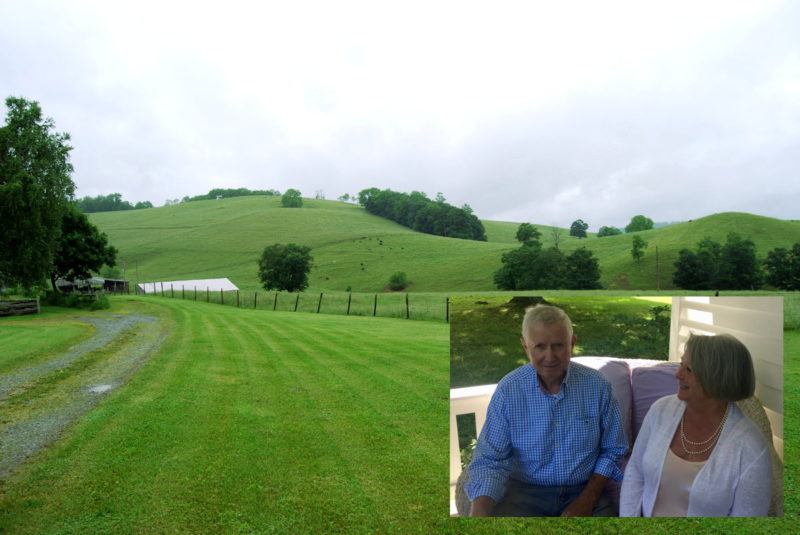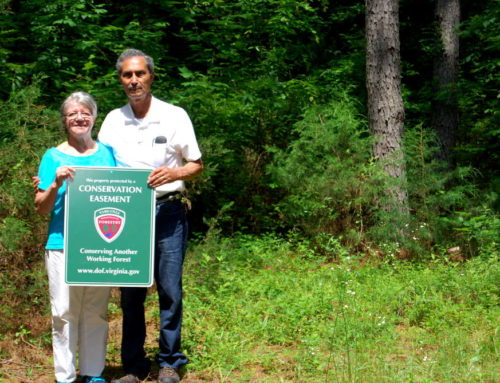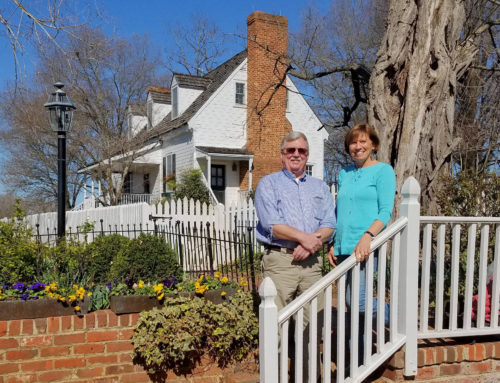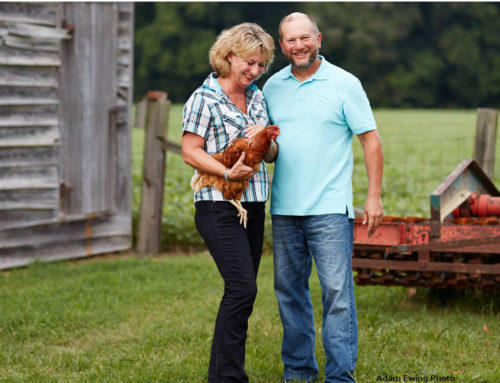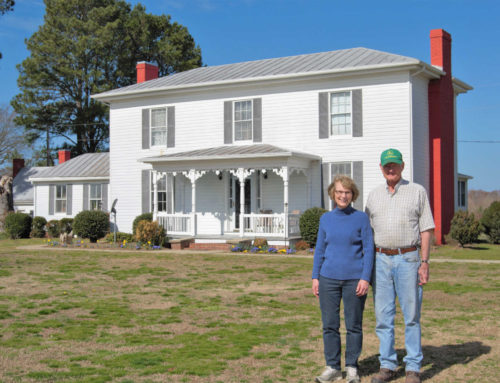Bland County Couple Preserves Farm, Clears Debt for Retirement
It was 1960 when Gerhard Schoenthal started farming in Virginia and 1972 when he and his wife, Rosemary, bought their farm in Bland County.
In 2015, after more than 55 years working the land and enjoying its beauty, the Schoenthals were ready to slow down, but for them, as for so many farm families, farming their land had meant taking on debt. The land, where all their resources were invested, was in effect their retirement savings.
Their solution was to donate a conservation easement on their 773 acres. The property includes 200 acres of U.S. Natural Resources Conservation Service-designated Soils of Statewide Importance, about 300 acres of forestland extending to the top of Walker Mountain, streams emptying into Walker Creek, and a karst terrain with groundwater vulnerable to surface contamination. The conservation easement protects all of these features, called “conservation values,” by limiting subdivision and development and keeping the land open for farming, hunting, and timber harvest and to preserve the viewshed from Interstate 77 and nearby roads.
The easement is held by the Virginia Outdoors Foundation, which will ensure that these values are protected in perpetuity.
In return for protecting these values, the Schoenthals received a federal tax deduction and a state tax credit under the Virginia land preservation tax credit program, which they could sell for cash.
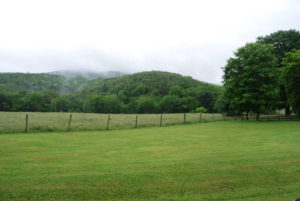
Forestland on the Schoenthals’ property extends to the top of Walker Mountain. (Conservation Partners photo by Sherri Tombarge)
A conservation easement, said Gerhard, “is a way to back out of farming without a debt load.”
The benefits have meant a lot to the Schoenthals. Instead of selling their farm to pay off debt, they can spend their retirement years on the land they worked so hard to improve. And no matter what happens to the farm after they’re gone – their sons have careers in other parts of the state and are not likely to take up farming – the farm will remain largely intact, beautiful and productive.
“We’d like to think that somebody else will enjoy it the way we have,” said Rosemary Schoenthal. “It’s a pretty place, [and] there’s lots of wildlife. Gerhard’s seen bear … and I’ve even seen some kind of wildcat. … It just walked straight by the house. … It’s beautiful, natural country.
“I love it when my grandchildren come,” she added. “They … run up and down the hills and up the mountain and explore the mountain streams and woodland. It’s just a nice place to live.”
And this spring, she said, they found their first morel mushrooms, a delicacy so valued that most of the local patches are close-held secrets.
So too are the financial issues so often associated with family farms.

The Schoenthal’s house, built in 1929, was framed in foxgloves earlier this summer. (Conservation Partners photo by Sherri Tombarge)
“No farmer wants to tell you they’re in a jam,” said Gerhard, noting, however, that many must sell land to cover debt. “We’re just not going to have any open land if this keeps up,” he said.
Yet donating a conservation easement is, said Rosemary, “a bit of a process.”
Conservation Partners coordinated the multi-step process, which involves the work of several professionals, for the Schoenthals. “They had a good relationship with our attorney and with our accountant,” she said. “Knowing where things are going and where the money’s going is daunting. … We would not have tried to do it by ourselves.”
Gerhard and Rosemary also took advantage of Conservation Partners’ Advance Funding Program, which temporarily covered their expenses. Advances under the Advance Funding Program can be repaid from the sale of their land preservation tax credits or funds received under the VOF’s Land Preservation Trust Fund.
And, a year later, there are no regrets about protecting the farm. “We’re glad we did it,” said Rosemary. “It feels … special, to have it protected.”

